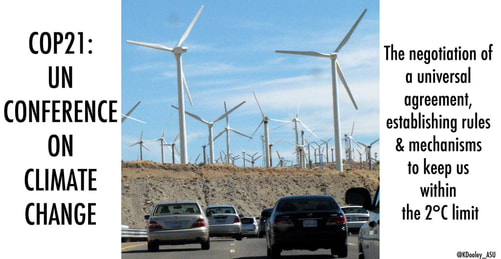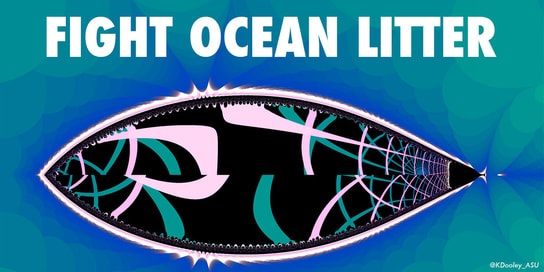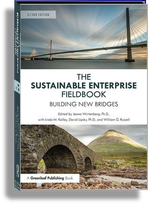INTRODUCTION AND OVERVIEW
Supplemental Resources

Recommended Articles
- Climate Change & Business:What Every MBA Needs to Know: “Climate change will affect almost every industry in coming decades—whether that’s through direct risks to physical assets or through supply chain disruptions or reputational pressure from customers or employees,” says Katie Kross, managing director of Fuqua’s Center for Energy, Development, and the Global Environment, which produced the briefing. “There’s money to be made and lost. Every MBA student today should be thinking about where the opportunities will be, and how they will adapt their investment portfolios and operations in the future.”
The 6-page briefing document, called “Climate Change & Business: What Every MBA Needs to Know,” summarizes the business risks and opportunities related to climate change in a concise, accessible format for MBA students. Drawing on examples from Toyota, Starbucks, and Amazon as well as research reports from Blackrock, Munich Re, and others, the briefing asserts, “The impacts of climate change will affect where offices and manufacturing facilities are located, how leaders plan for and respond to crises, how investors think about the cost of capital, how customers perceive the brands they buy, where and how raw materials are sourced, and even, potentially, what materials are available for new products in the future.” - On the Introduction Chapter Page 1 of the book the authors address the importance of understanding nature's resources, and proceed to answer the question 'what can be done to gain more connectivity to the world we live in?' in subsequent chapters. "While we are making awesome advances in creating and applying highly complex technologies to improve our quality of life, we are also severely damaging the essential resources that make life on Earth possible. This is the greatest human irony of all time. We cannot develop much less sustain our lives and economies without the resources provided by Earth's natural environment. Though they may seem abundant, those resources are finite. Consuming them at the rate we are doing is unsustainable by all measures. If we are to sustain ourselves, we must make different choices, changing consumption habits and innovating so that we work well within the boundaries of our single, shared planet. We can invent businesses and lifestyles that align with planetary realities so that we will thrive. People, planet, profits are inexorably intertwined. It's up to each of us to pay attention, lead when we can, and be thoughtful, aware contributors when others are leading. We do our best when we work together. It will take more than inventing new technologies, though. First, we must reconnect our values to what really matters, that deep, visceral understanding of our integral connection with the essence of Earth's bounty: water, air food-nurturing soil, energy among those resources. Writing and rereading this last sentence, it seems too obvious to even state. Yet, our actions, individually and as societies, show we have been taking these absolutely essential resources for granted, giving them no more than minimal care on our part. How have we gotten ourselves so disconnected in a world where we have so much, and what can we do about it?" A landmark global assessment warns that the window is closing to safeguard biodiversity and a healthy planet. Yet solutions are in sight One million species at risk of extinction : ........Based on a review of about 15,000 scientific and government sources and compiled by 145 expert authors from 50 countries, the global report is the first comprehensive look in 15 years at the state of the planet’s biodiversity. This report includes, for the first time, indigenous and local knowledge as well as scientific studies. The authors say they found overwhelming evidence that human activities are behind nature’s decline. They ranked the major drivers of species decline as land conversion, including deforestation; overfishing; bush meat hunting and poaching; climate change; pollution; and invasive alien species.
 Click on Picture for - The Role of Business of COP21 Blog
Click on Picture for - The Role of Business of COP21 Blog
- HR’s Role in Building a Sustainable Enterprise: Insights From Some of the World’s Best Companies : Sustainability—balancing social, environ-mental, and economic factors for short- and long-term performance—is a critical issue for the world and for business. We interviewed key executives at nine of the world’s most “sustainable” companies to examine important issues about their sustainability journeys and the role Human Resources is playing.
- AMA Study-Creating a Sustainable Future : This report examines the history of the sustainability paradigm, the factors that are making the paradigm more compelling, the degree to which organizations value and engage in sustainability-related practices, and the future outlook for sustainability. American Management Association commissioned the Human Resource Institute to conduct the global survey on which the study is based.
- Sizing the prize (PwC 2017): What’s the real value of AI for your business and how can you capitalize? Artificial intelligence (AI) is a source of both huge excitement and apprehension. What are the real opportunities and threats for your business? Drawing on a detailed analysis of the business impact of AI, we identify the most valuable commercial opening in your market and how to take advantage of them.
- Reimagining the 21st century employment relationship (TMH 3rd Ed Chapter 40): Aligning Human Resources and Corporate Social Responsibility Through Employment Policies and Practices. In this chapter, we apply a multifunctional, transdisciplinary approach, and consider human resources, law, and management, and particularly corporate social responsibil-ity, to start reconceptualizing the notion of “employee CSR” and how it should be put into practice.
- Ethical Corp State of Responsible Business 2016: Drawing on the views of those who know it best, Ethical Corporation’s second State of Responsible Businessreport provides up-to-date insight into how corporate sustainability is viewed, organised, and prioritised.
- Future of Work 2016 HRPS: This webinar documents presents - Revealing insights from recent research, The implications for the future of work & Scenarios and real world examples

- The Science of Scarcity (2015): A behavioral economist’s fresh perspectives on poverty. “The mistake we make in managing scarcity is that we focus on one side of the calculus,” ....... The cost of making changes to existing policies is easy to measure, but the cost of not doing so is much harder to quantify. This is what the science of scarcity attempts to gauge, Mullainathan and Shafir maintain: how situations, programs, and policies can deplete, tax, or build up psychological resources that are every bit as important as the physical ones that fill—or empty—our coffers.
- Human Rights Report 2017: Establishes a Group of Eminent International and Regional Experts on Yemen, Creates an Open-ended Intergovernmental Working Group on Accountability of Private Military and Security Companies, and Extends Mandates on Burundi, Myanmar, Cambodia, Central African Republic, Sudan and Somali.
- IPCC Climate Change Report 2014: The Synthesis Report (SYR), constituting the final product of the Fifth Assessment Report (AR5) of the Intergovernmental Panel on Climate Change (IPCC), is published under the title Climate Change 2014. This report distils, synthesizes and integrates the key findings of the three Working Group contributions – The Physical Science Basis, Impacts, Adaptation, and Vulnerability and Mitigation of Climate Change. This document is the result of coordinated and carefully connected cross Working Group efforts to ensure coherent and comprehensive information on various aspects related to climate change.
- Millennium Development Goals 2015: At the beginning of the new millennium, world leaders gathered at the United Nations to shape a broad vision to fight poverty in its many dimensions. That vision, which was translated into eight Millennium Development Goals (MDGs).............The data and analysis presented in this report prove that, with targeted interventions, sound strategies, adequate resources and political will, even the poorest countries can make dramatic and unprecedented progress.
- Book Excerpts-Overfished Ocean Strategy: Resources are being depleted at an alarming rate, and the cost of raw materials is rising dramatically. The linear, throwaway economy in which we extract resources at one end and throw them away at the other is rapidly coming to an end. Nadya Zhexem-bayeva argues that, as a result, businesses need to make resource scarcity their primary strategic consideration, not just a concern for their “green” divisions. In this chapter from Overfished Ocean Strategy, she offers five essential principles for innovating in this new reality. Through examples from real companies, she shows how businesses can find new opportunities by taking the old, linear model and turning it into a circular one. In another article, she states "The art of turning resource scarcity into competitive advantage is what I call Over-fished Ocean Strategy".
- Papa Francesco encyclica: In this 192-page paper "On Care for Our Common Home," first released in 2015, Pope Francis discusses the inextricable link and interdependence of humanity and the environment. In particular, he proposes a new and deeper partnership between science and religion to combat human-driven climate change. Significantly, this position brought him immediately into conflict with skeptics, whom he chided for their “denial” of scientific truths.

- Six Americas 2012: Yale/George Mason SixAmericas, Sept. 20122 Executive Summary. In 2008, using nationally representative survey data on global warming beliefs, behaviors and policy preferences in the United States, we identified six distinct groups of Americans “Global Warming’s Six Americas.”Since then, we have tracked the size of these six audiences and the ongoing evolution of their beliefs, behaviors and policy preferences through a series of national surveys.
- The road from Principles to Practice 2015: The road from principles to practice: Today's challenges for business in respecting human rights is a report by The Economist Intelligence Unit sponsored by a group of organisations including governments, business groups, non-governmental organisations, multinational companies, and law and auditing firms. The study explores the views of businesses worldwide on their responsibility to respect human rights and the ways in which these obligations are carried out.
- The Shareholder Value Myth: In The Shareholder Value Myth: How Putting Shareholders First Harms Investors, Corporations, and the Public, Lynn Stout discusses how the traditional managerial focus on the shareholder’s interest can be harmful for the corporation and even for shareholders themselves and how it is more valuable to spread the focus over several objectives.
- The Sustainable Development Goals Report 2017: In adopting the 2030 Agenda for Sustainable Development, world leaders resolved to free humanity from poverty, secure a healthy planet for future generations, and build peaceful, inclusive societies as a foundation for ensuring lives of dignity for all. This collective journey has at its heart a promise to leave no one behind. The 2030 Agenda is deliberately ambitious and transformational, with a set of 17 integrated and indivisible Sustainable Development Goals and targets to guide us. Crucially, it is a universal agenda, applying to all countries; even the richest have yet to fully ensure women’s rights, conquer inequality or safeguard the environment.
- UN Impact Brochure: The 2017 UN Global Compact Progress Report takes stock of how UN Global Compact participants are embedding the Ten Principles in their strategies and operations to ensure that business activities are aligned with the universal values and declarations of the United Nations. And for the first time we also review how businesses are contributing to the 17 Sustainable Development Goals.
- Wasted Food: This paper examines the inefficiencies in the U.S. food system from the farm to the fork to the landfill. By identifying food losses at every level of the food supply chain, this report provides the latest recommendations and examples of emerging solutions, such as making “baby carrots” out of carrots too bent (or“curvy”) to meet retail standards. By increasing the efficiency of our food system, we can make better use of our natural resources, provide financial saving opportunities along the entire supply chain, and enhance our ability to meet food demand.
- Energy Darwinism (ZTGI Report): Why a Low Carbon Future Doesn’t Have to Cost the Earth. In this report we examine the likely costs of inaction in terms of the potential liabilities from climate change to see whether we can afford not to act. We also examine whether the world canafford to act, by comparing the incremental costs of following a low carbon path to global GDP.

